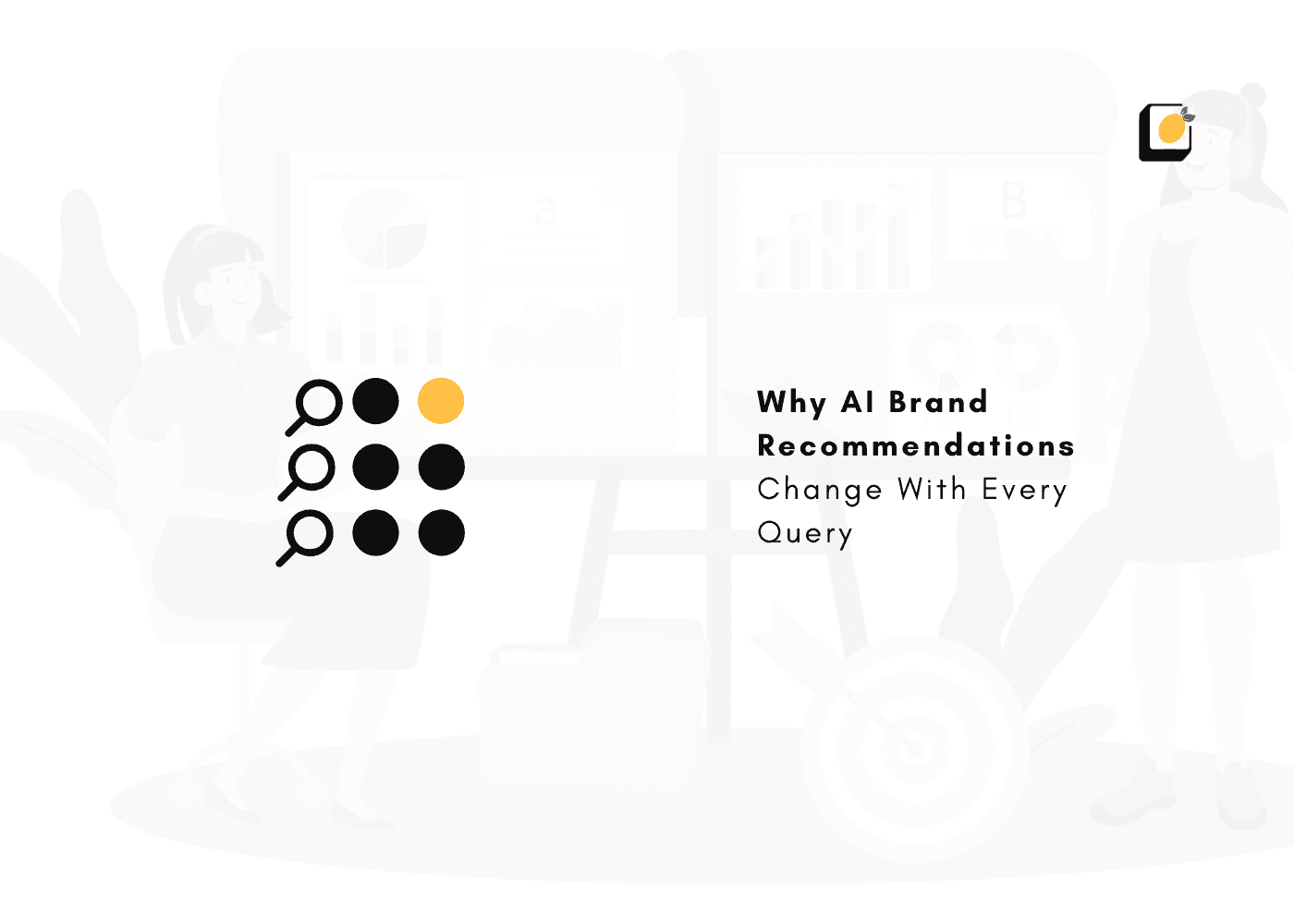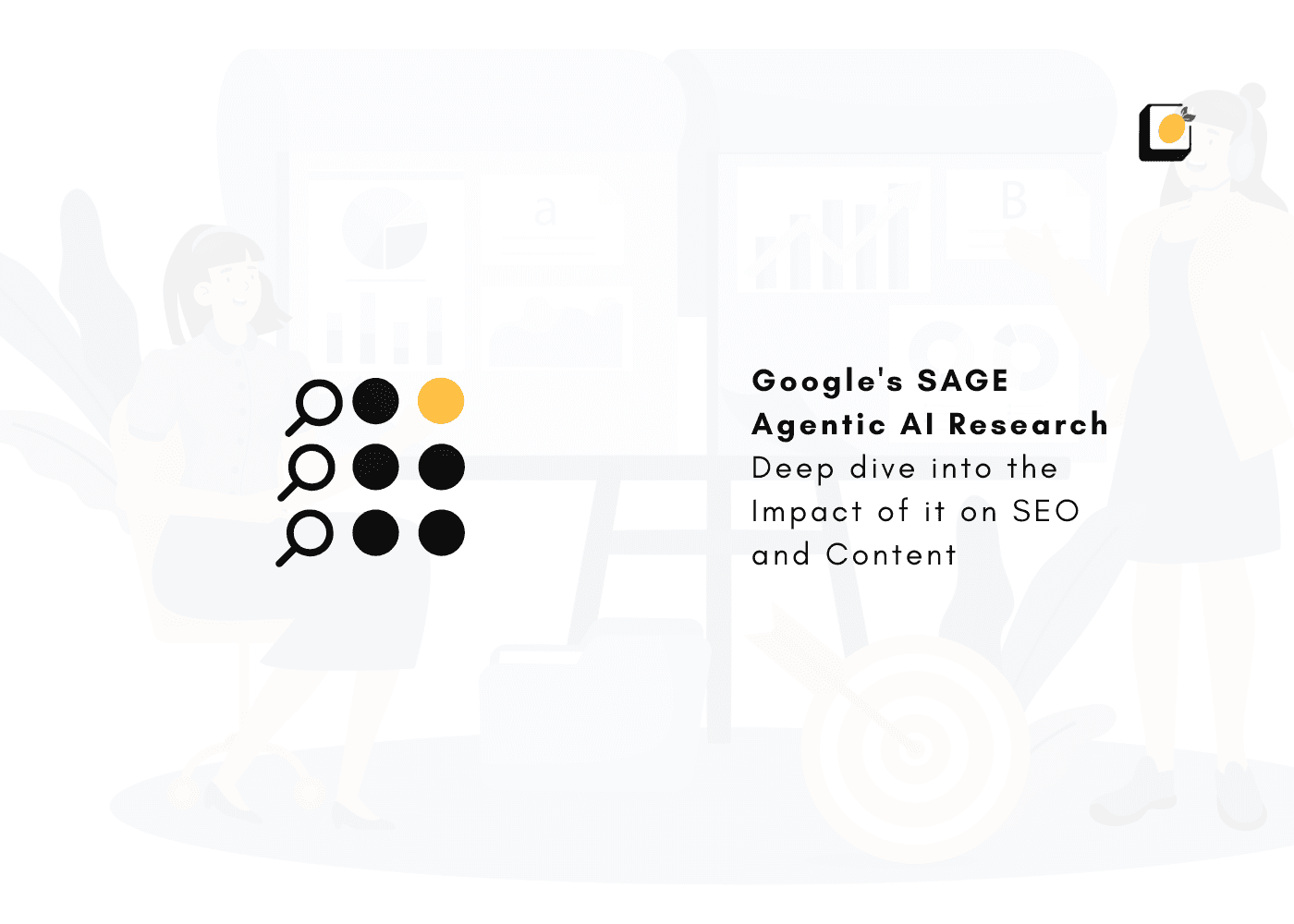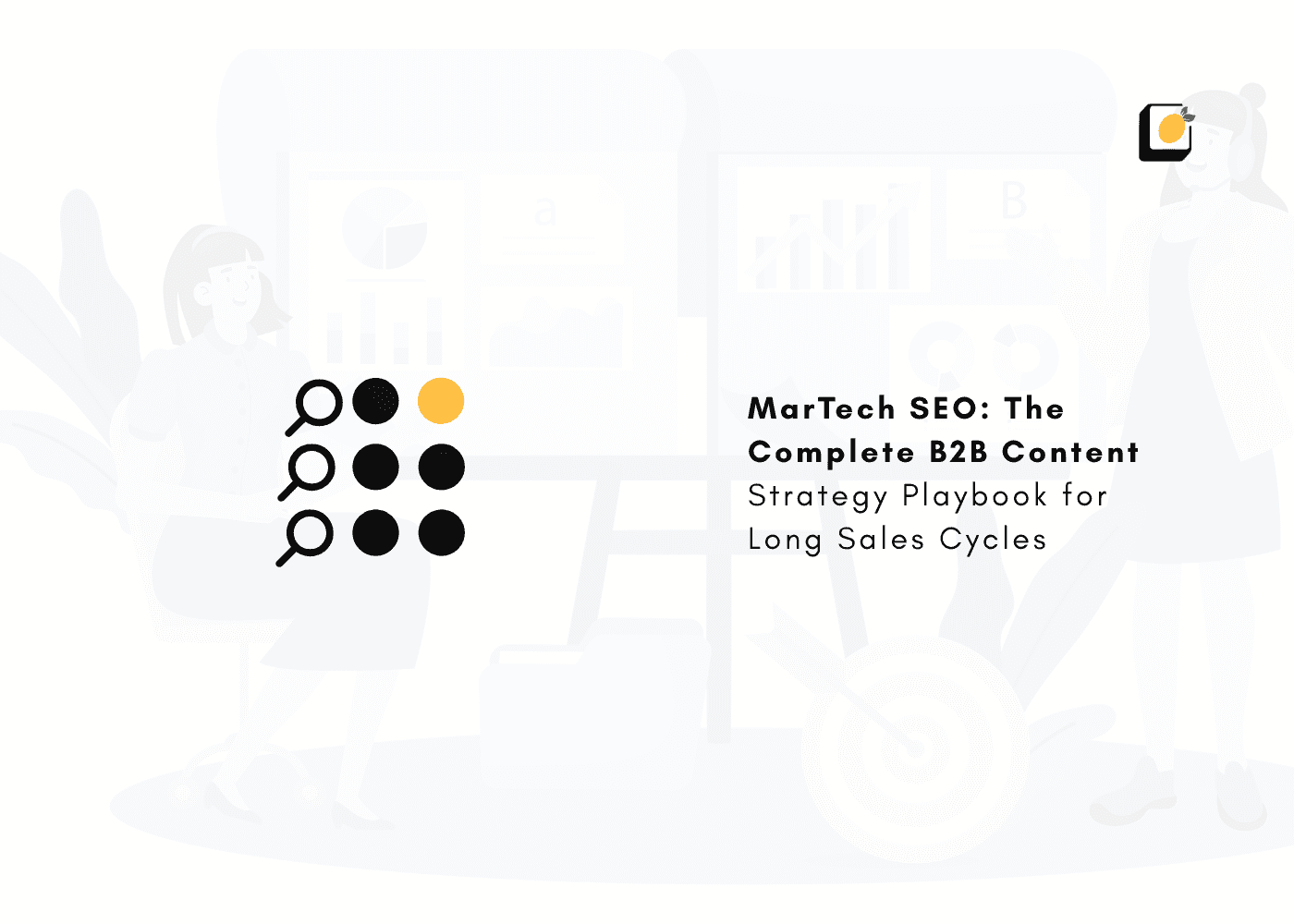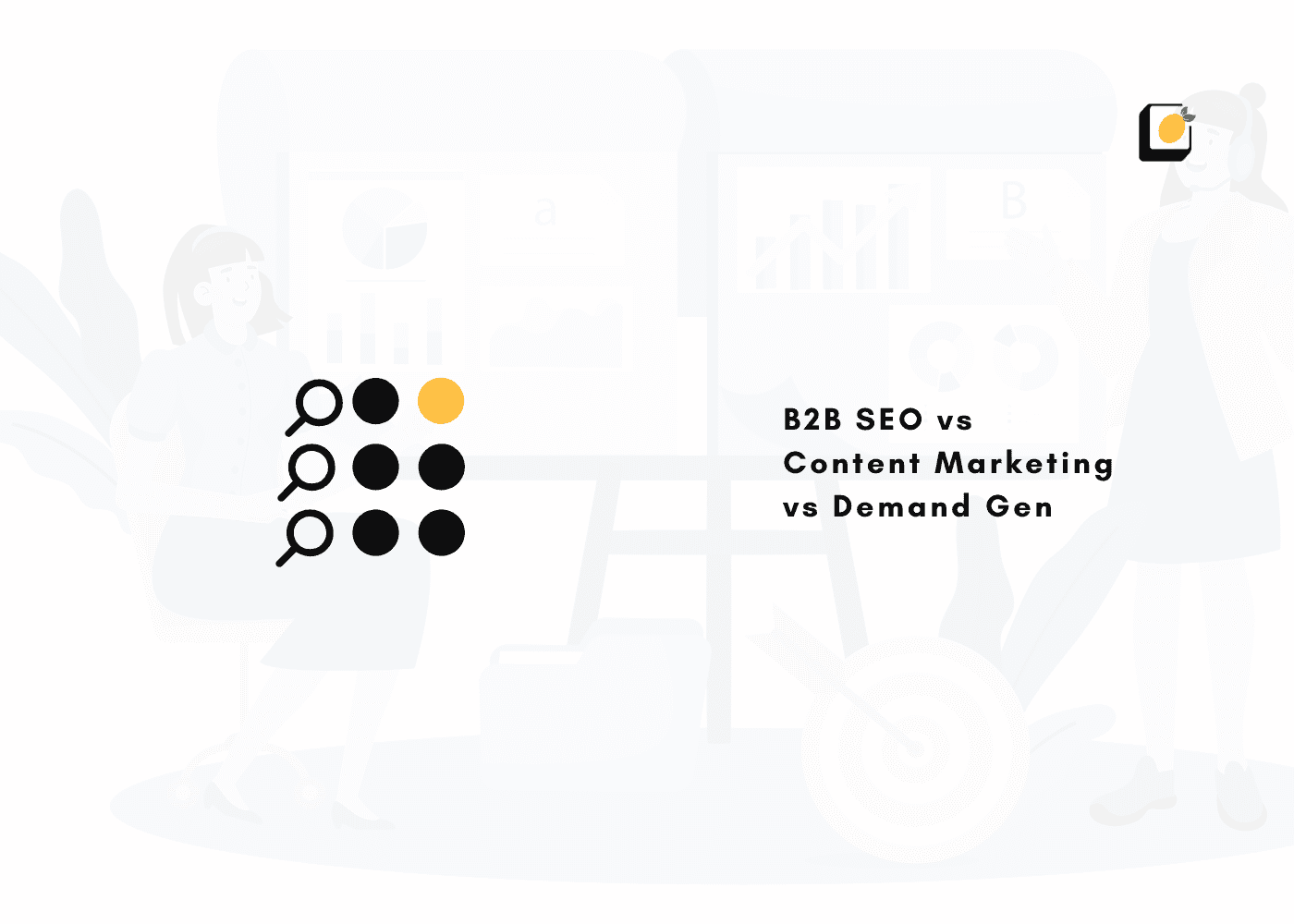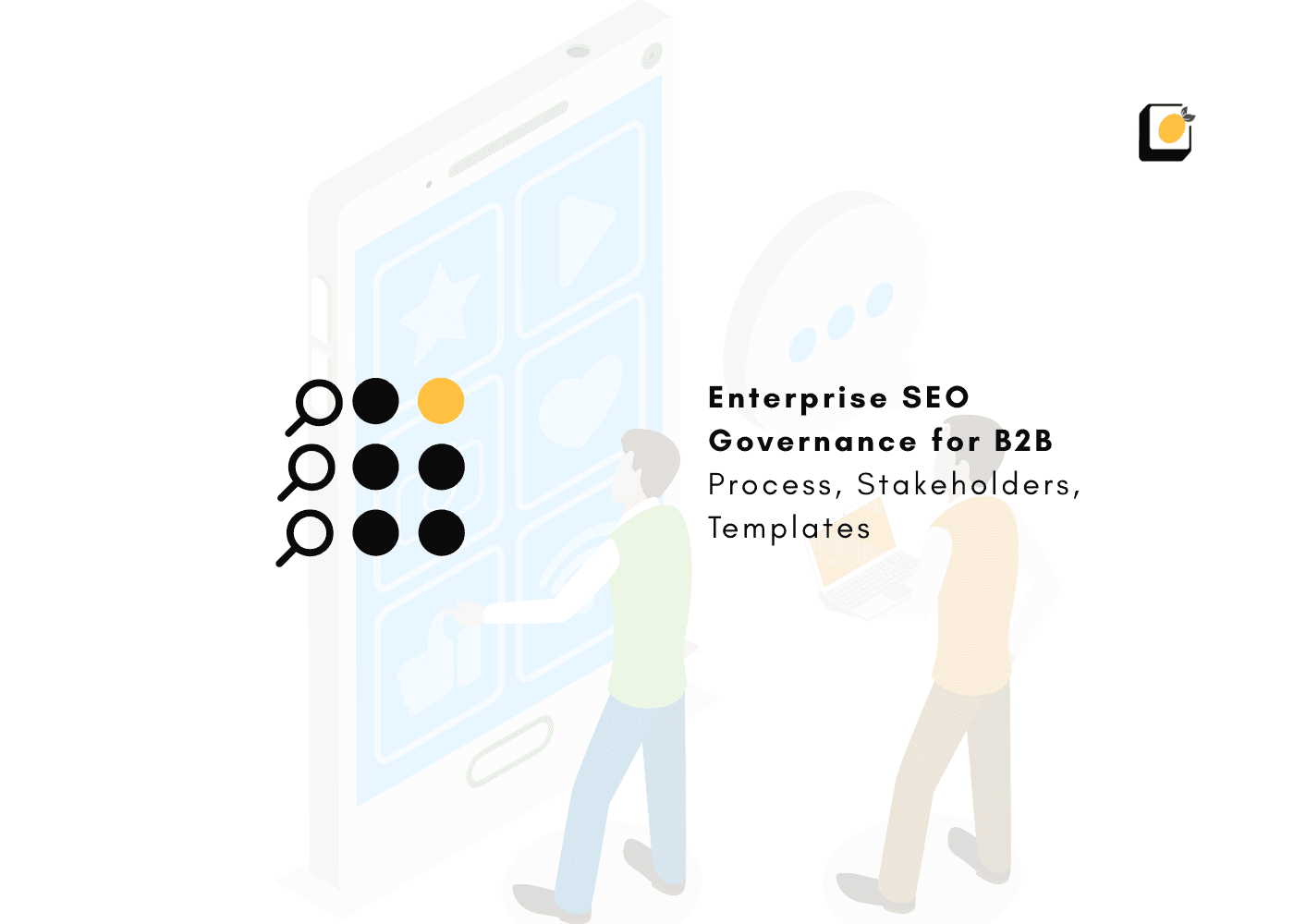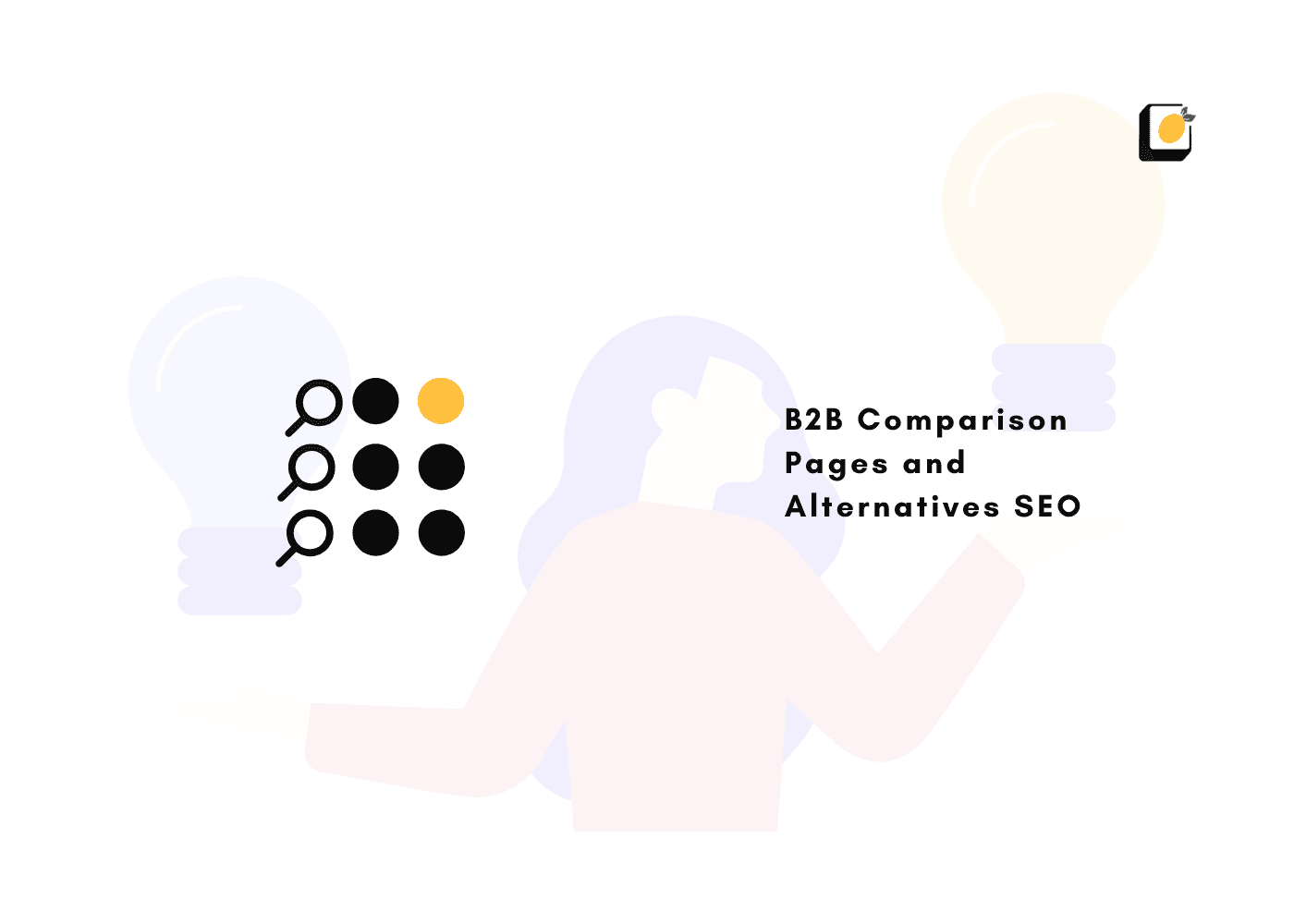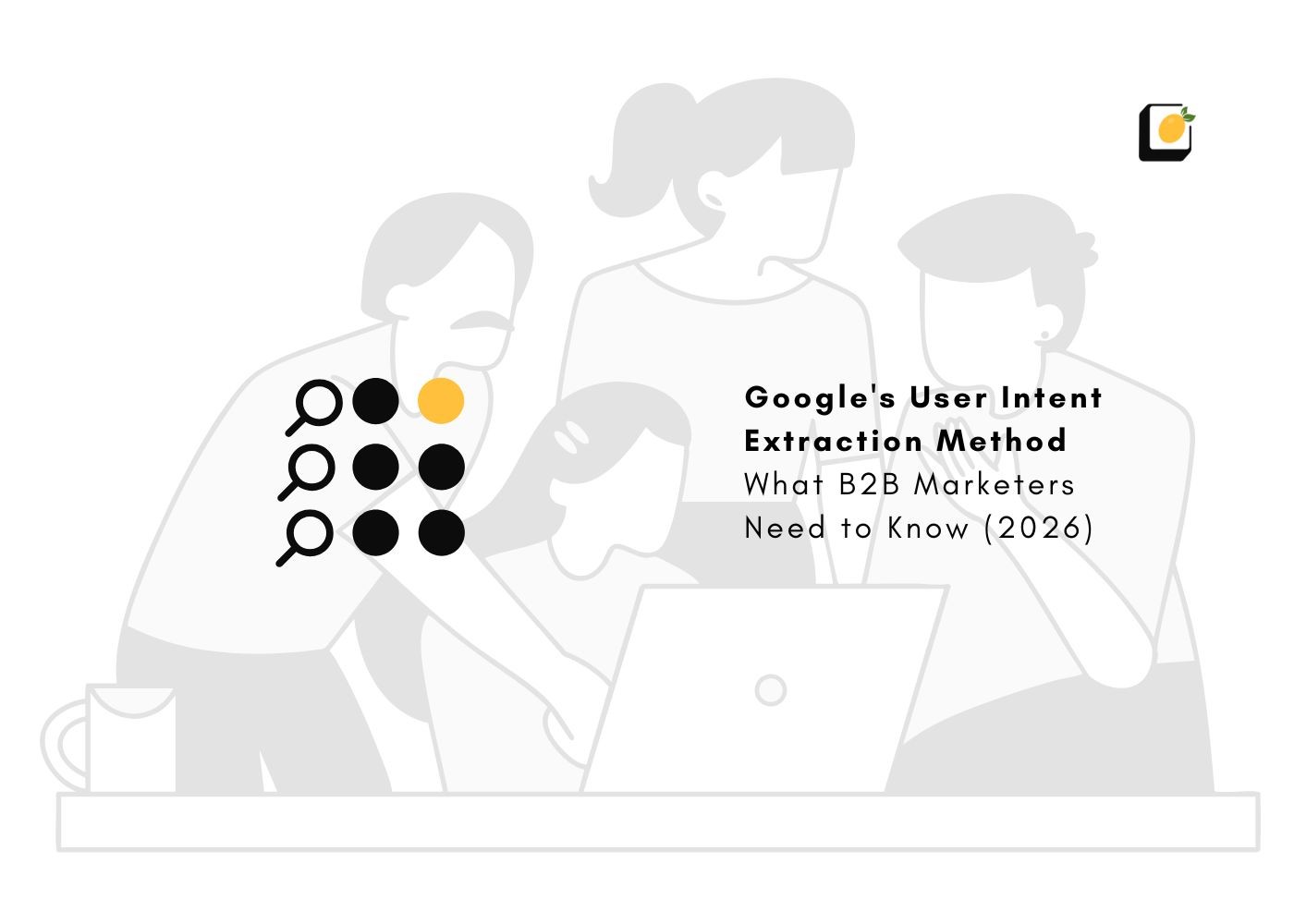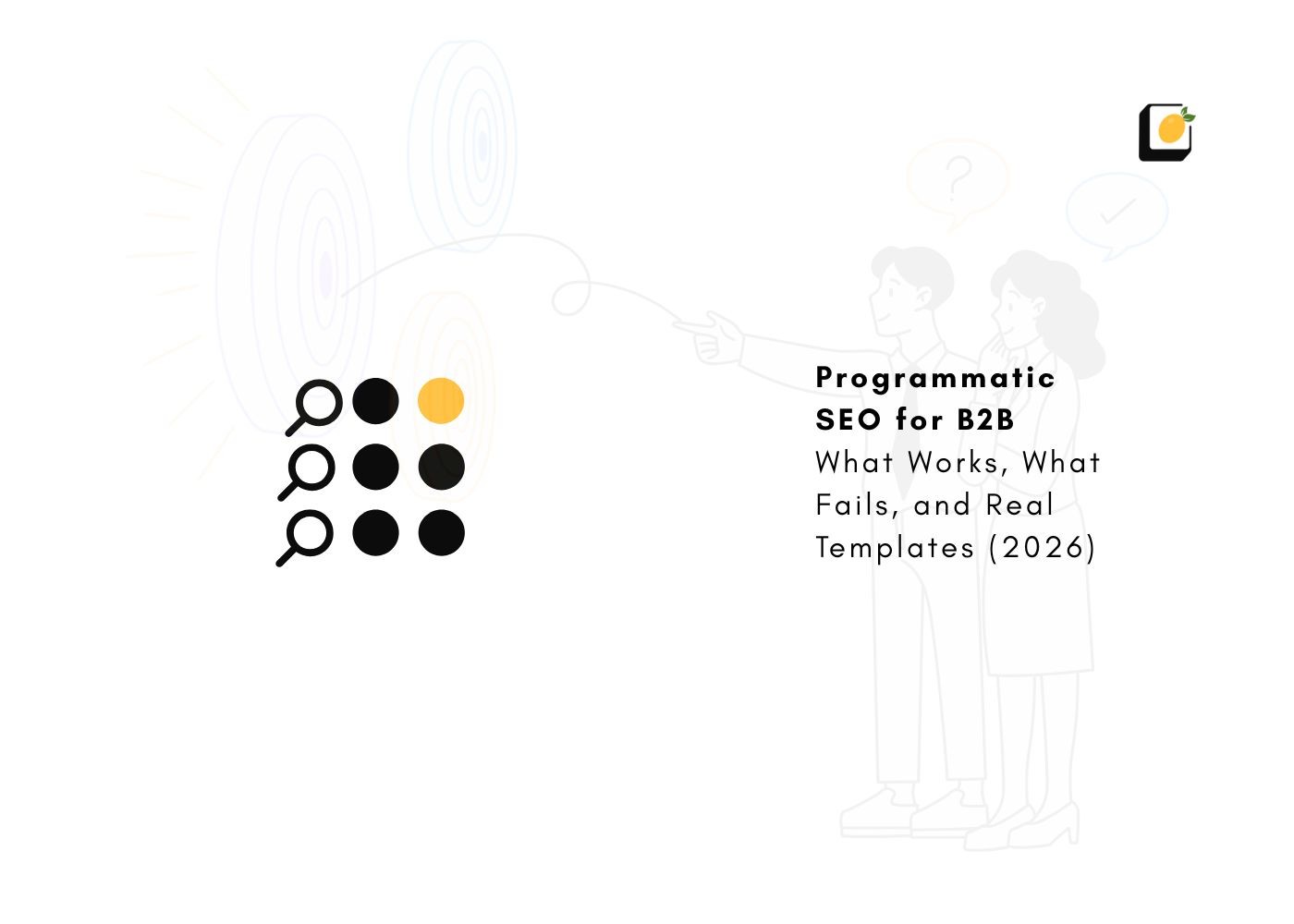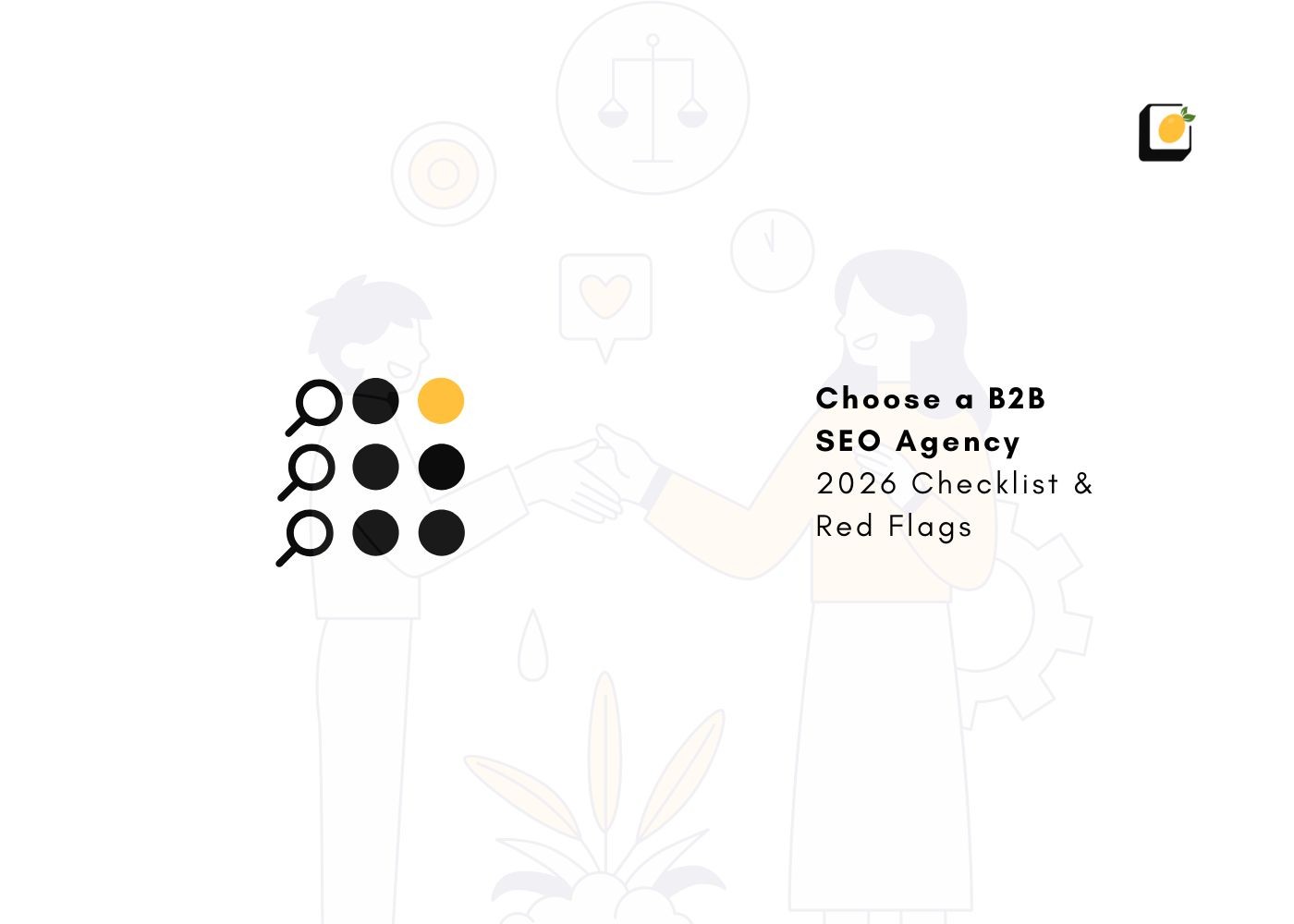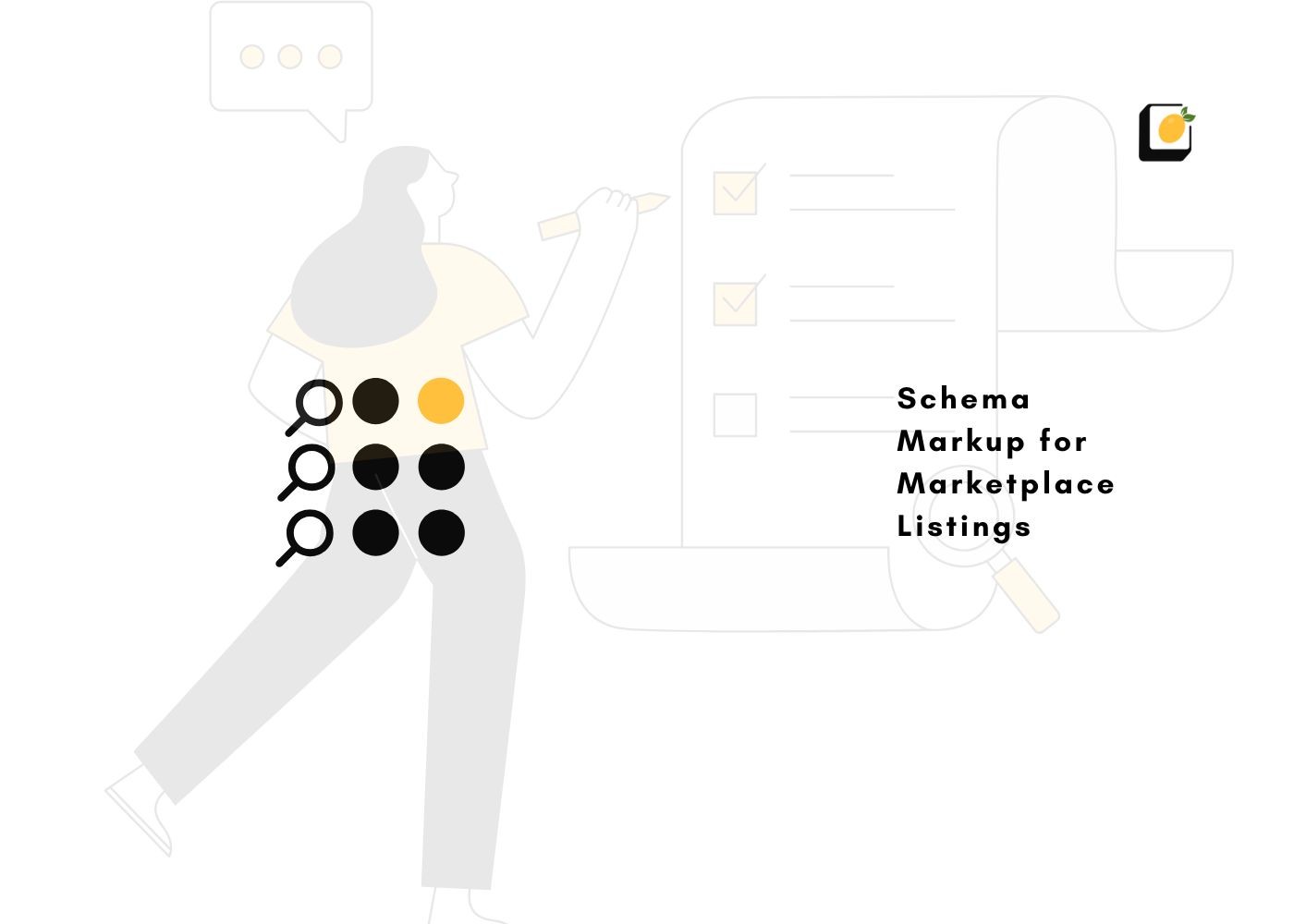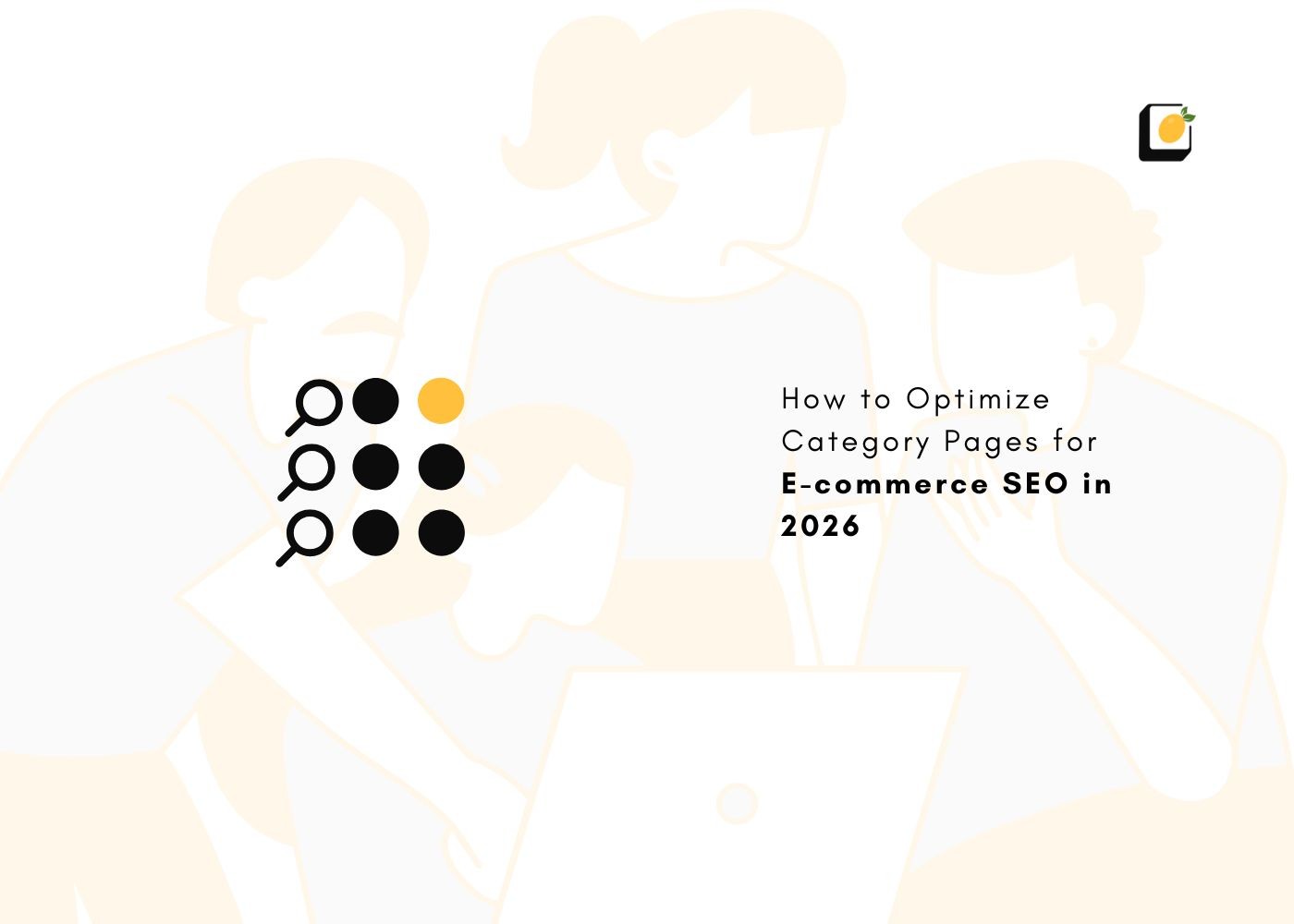How important is SEO? Ultimate Guide for Local, Small businesses and Enterprises in Age of AI Search and Changing User Behavior
July 2, 2025
Join 500+ brands growing with Passionfruit!
Introduction
The way people find information online has changed forever. The familiar routine of typing a few words into a search box and sifting through ten blue links is rapidly becoming a relic of the past. We are now in the era of conversational AI search, where you can ask complex questions and get instant, synthesized answers. This shift is as fundamental as the move from libraries to search engines. For any business with an online presence, this new reality presents a critical question.
What is SEO in this new world? Search Engine Optimization is still the art and science of getting found online. The core mission hasn't changed, but the rules of the game have been completely rewritten. Understanding why SEO is important for business is no longer just about ranking on Google; it's about becoming a trusted source for the AI systems that now act as gatekeepers to information. The importance of SEO in digital marketing has magnified because the competition for attention is fiercer than ever.
Our guide is your comprehensive map to this new territory. We will explore how to search effectively using AI and, more importantly, how to structure your digital presence so that AI search engines find and favor your content. You will see why SEO is important for your website's survival and how a smart SEO strategy is the key to thriving.
Why Has Search Fundamentally Changed?
How Do Search Engines Actually Work in 2025?
To win the game, you first need to understand the playing field. Modern search engines are not simple databases; they are incredibly complex learning machines.

Beyond Keywords: The Rise of Semantic Search and AI
Old-school SEO focused heavily on keywords. You'd pick a term and repeat it on your page. Today, that approach is laughably outdated. AI-powered search engines use semantic search, meaning they focus on understanding the meaning and intent behind a query, not just the words themselves. They analyze the relationships between words and concepts to grasp what a user truly wants. For a complete breakdown of the mechanics, explore our guide on how search works in the modern era.
Google's algorithm, for instance, considers hundreds of signals to rank a page. Recent developments, like the changes outlined in Google's 2025 Muvera update, place an even greater emphasis on content quality, user experience, and signals of authority. The system is designed to reward content that is genuinely helpful, comprehensive, and trustworthy.
A crucial distinction in this environment is between organic vs paid traffic. Paid ads can get you to the top of the page instantly, but that visibility vanishes the moment you stop paying. Organic traffic, earned through a solid SEO strategy, is sustainable and builds on itself over time, delivering far greater long-term value.
What's the Difference Between SEO, GEO, and AEO?
As search evolves, so does the terminology. You'll hear about more than just SEO.
SEO (Search Engine Optimization): The traditional practice of optimizing for search engines like Google and Bing.
GEO (Generative Engine Optimization): The new practice of optimizing your content to be found, understood, and cited by generative AI models like ChatGPT, Perplexity, and Google's AI Overviews.
AEO (Answer Engine Optimization): A broader term that encompasses optimizing for any platform that provides direct answers, including voice assistants like Alexa and Siri.
These are not separate disciplines but interconnected parts of a modern optimization strategy. Success in 2025 requires a holistic approach. Understanding the nuances between SEO vs GEO vs AEO is the first step toward building a truly comprehensive digital presence.
Why Does Understanding User Intent Matter More Than Ever?

If you take only one thing away from this guide, let it be this: intent is everything. AI is exceptionally good at figuring out why someone is searching. Your job is to provide the perfect answer for that "why."
The Four Core Types of Search Intent
Most online searches fall into one of four categories:
Informational Intent: The user wants to know something. Examples: "how does photosynthesis work," "what is the capital of Australia."
Navigational Intent: The user wants to go to a specific website. Example: "Facebook login," "Passionfruit SEO."
Transactional Intent: The user wants to buy something. Example: "buy Nike Air Max 90," "iPhone 16 price."
Commercial Investigation: The user is planning to buy but is still in the research phase. Example: "best 4K TVs 2025," "SEMrush vs Ahrefs."
Your content must be precisely aligned with the intent you are targeting. A blog post explaining a concept won't satisfy a user with transactional intent, and a product page won't help someone looking for a deep informational guide. AI prioritizes content that perfectly matches the user's need at that moment. Mastering this alignment is a core reason why search engine optimization (seo) is so critical. For a deep dive into the tools that help with this, check our comparison of SEMrush vs Ahrefs vs Moz.
The Conversation with AI: Voice Search and Natural Language
The rise of voice assistants has accelerated the shift toward conversational search. People don't speak to Siri or Alexa in keywords; they ask full questions. This changes the entire dynamic of keyword research. Instead of targeting "best pizza NYC," you now need to target "What's the best pizza place near me that's open now?"
This requires a shift in content creation. Your pages should be structured to answer questions directly. FAQ sections, "how-to" guides, and content that uses natural, conversational language will perform better. This is where a deep guide to keyword research for AI SEO becomes invaluable. You need to understand not just keywords, but the entire ecosystem of LSI keywords and semantic keywords to build authority. Visual search is also a growing part of this conversational landscape; you can learn more about what Google Lens is and how to use it to stay ahead.
How Can You Build an Unbeatable Advantage in the AI Era?
Understanding the new landscape is the first step. Now, you need to build a presence that can't be ignored. This isn't about quick tricks; it's about building a durable, long-term asset.
How Can You Build a Lasting SEO Foundation Like "Atomic Habits"?
Small, Consistent Efforts for Massive Compounding Growth
SEO is the ultimate embodiment of James Clear's Atomic Habits for your business. A single optimized blog post, a small improvement in site speed, or one new backlink might seem insignificant on its own. But the compounding effect of these consistent, incremental improvements builds an unstoppable momentum of organic traffic and authority that pays dividends for years.
This is the essence of a successful long-term strategy. You don't just "do SEO" once. You integrate it into your operations as a continuous process of refinement. This is how important is seo strategy for sustainable growth. Each small effort adds another brick to your digital fortress. For actionable steps, implement our 13 proven tips to increase organic traffic in 2025. If you're struggling with traffic, our deep dive into why your site might be losing organic traffic can provide critical insights.
What is E-E-A-T and Why is it Your Most Powerful Weapon?
E-E-A-T is a concept from Google's Quality Rater Guidelines, and it's the gold standard for content quality. AI systems are being trained to recognize and reward it.
Experience: Does the author have real, first-hand life experience with the topic? A product review from someone who has actually used the product is more valuable than one written from a spec sheet.
Expertise: Does the author have the necessary knowledge or skill in the field? A medical article should be written by a medical professional.
Authoritativeness: Is the author or the website recognized as a go-to source in the industry? Authority is built through citations, mentions, and links from other respected sources.
Trustworthiness: Is the information accurate, honest, and reliable? Trust is built through transparent authorship, secure website protocols (HTTPS), and clear contact information.
AI doesn't just scan for keywords; it looks for these signals of quality. Building your E-E-A-T is non-negotiable. You can learn more about the core SEO fundamentals that support E-E-A-T and even explore how platforms like X (Twitter) can be used to build real authority.
Ready to build unshakeable authority and E-E-A-T for your brand? Connect with our optimization specialists today.
How Do You Create a "Digital Moat" Like Warren Buffett?
Why Top Rankings Are Your Best Defense
Warren Buffett seeks businesses with a wide 'economic moat'—a durable competitive advantage. In the digital marketplace, a top-ranking position on Google, earned through authority and quality, is that moat. It's a strategic asset you own, protecting your visibility and generating a steady stream of low-cost leads while your competitors are forced to pay for every single click.
This digital moat provides immense value. Users inherently trust organic results more than paid ads. A top organic ranking is a powerful third-party endorsement from Google itself. This is a core reason why SEO is important for business; it's not just a marketing channel, it's a way to build a defensible competitive advantage. The long-term financial impact is profound, as explained in our guide on how SEO impacts business revenue and growth.
How to Analyze and Outrank Your Competitors
Building your moat means understanding the landscape around you. A thorough competitor SEO analysis is your reconnaissance mission. You need to identify who is currently ranking for your target topics and deconstruct their strategy.
What keywords are they targeting?
What kind of content are they creating?
Where are they getting their backlinks from?
What is their site structure and user experience like?
Answering these questions reveals gaps and opportunities. Perhaps their content is outdated, or their site is slow on mobile. Every weakness is an opening for you to exploit. This is especially true for local businesses. A focused local SEO strategy can allow a small shop to outrank a national chain in its specific geographic area. Mastering the fundamentals of local SEO and learning how to rank in the local 3-pack can transform a local business. For targeted help, you can explore our services as an SEO agency in Delhi or an SEO agency in Bangalore.
What is the "Matrix Moment" for Your Business's SEO?
Taking the Red Pill of SEO Understanding
Operating without a clear SEO strategy is like being lost in The Matrix—you have a great product, but you're invisible to those actively searching for it. SEO is the red pill. It reveals the architecture of search, allowing you to connect directly with users at the exact moment of their need, pulling them out of the noise and into your world.
Once you see this underlying structure, you realize that search is not random. There are clear rules and systems at play. Understanding these rules empowers you to make strategic decisions that have a direct impact on your visibility and bottom line. You stop guessing and start engineering your success.
What Are the Core Pillars of the Search Algorithm?
While the full algorithm is a secret, its core pillars are well-understood.
Content: Is your content relevant, comprehensive, and aligned with user intent?
Technical Health: Is your website fast, secure, mobile-friendly, and easy for search engines to crawl and understand? Understanding how Google indexing works is a crucial part of this.
Backlinks: Are other authoritative websites linking to yours? Backlinks are like votes of confidence.
User Engagement: Do users who visit your site stay for a while, interact with your content, and seem satisfied? Or do they immediately bounce back to the search results?
A strong SEO foundation requires attention to all these areas. You need to stay on top of the future of technical SEO trends and know how to diagnose and fix technical issues like server errors.
How Do You Practically Master AI Search and Optimization?
Theory is great, but results come from action. Let's get into the practical steps for mastering AI search and optimization.
How Can You Get Better Answers by "Speaking AI"?
Learning to "speak AI" is a new skill. You need to move from keywords to conversations.
Prompt Engineering: The Art of Asking the Right Questions
The quality of your AI search results depends directly on the quality of your prompts.
Be Specific: Don't ask for "marketing ideas." Ask for "low-budget digital marketing strategies for a new local coffee shop in Brooklyn."
Provide Context: Tell the AI who you are and what your goal is. "I'm a beginner learning to code in Python. Explain for-loops with a simple analogy."
Assign a Persona: Ask the AI to act as an expert. "Act as a world-class financial advisor. What are the pros and cons of investing in index funds vs. individual stocks for a 30-year-old with a moderate risk tolerance?"
Iterate and Refine: Use follow-up questions to dig deeper. The AI remembers the context of your conversation.
Mastering this skill is so important that we've created a complete guide on how to search with AI.
Which AI Model Should You Use for SEO and Research?
The AI landscape is crowded and competitive. Different models have different strengths.
ChatGPT: Excellent for creative tasks, writing, and general-purpose conversation.
Google's Gemini: Deeply integrated with Google's search index, making it powerful for real-time information and research.
Claude: Known for its large context window and strong performance in summarizing and analyzing long documents.
Perplexity AI: Designed specifically as a conversational search engine, it excels at providing cited answers.
The debate over which is best is ongoing. You can explore our detailed comparisons to make an informed choice:
Ultimately, the question of whether ChatGPT can replace Google Search depends on the specific task at hand.
How Do You Optimize Content for AI to Find and Feature?
Optimizing for AI is about making your content easy for machines to understand, digest, and trust.
Becoming the Hitchhiker's Guide: Creating Definitive Content
The highest level of SEO success isn't just about being seen; it's about becoming the digital equivalent of The Hitchhiker's Guide to the Galaxy for your industry. The goal is to build such authority and trust that your brand becomes the calm, definitive, and indispensable answer whenever a potential customer has a question.
This means creating content that is not just good, but comprehensively the best. Go deeper, provide more examples, include original data, and cover every angle of a topic. This is how you build topical authority. For practical guidance, see our tutorials on writing an SEO-optimized article with Claude 4 or using ChatGPT for an easy road to more traffic.
What is Generative Engine Optimization (GEO)?
GEO is the next evolution of SEO. It's the practice of optimizing your content to be featured in the AI-generated answers at the top of search results. You can learn more about what GEO is and why it's critical. The goal is not just to rank, but to be cited. Our guide on 2025 GEO benchmarks shows you how AI engines see your brand. For a full strategy, consult our Generative Engine Optimization guide.
Optimizing for AI Overviews and Snippets
Getting into these coveted spots requires specific tactics:
Use Clear, Question-Based Headings: Structure your content like a Q&A.
Provide Concise, Direct Answers: Answer the question immediately following the heading.
Use Structured Data (Schema Markup): This is code that explicitly tells search engines what your content is about. Implementing FAQ schema for AI answers is a powerful technique.
Use Lists and Tables: AI loves well-structured, easy-to-parse information.
Our step-by-step guides on how to rank on AI snippets and the complete guide to AI Overview optimization provide a full playbook.
How Does AI Change the Game for E-commerce SEO?

For online stores, AI is a game-changer.
How AI is Revolutionizing Online Stores
AI is transforming e-commerce from personalized product recommendations to automated customer service. New technologies like the Shopify Model Context Protocol (MCP) are creating smarter, more intuitive shopping experiences. Integrating AI is no longer a luxury; it's essential for staying competitive. Our guide on ChatGPT and Shopify AI integration outlines game-changing strategies.
Key SEO Strategies for Shopify and Other Platforms
The fundamentals of e-commerce SEO still apply, but with an AI twist.
Optimized Product Descriptions: Use natural language that answers customer questions.
High-Quality Images and Videos: Visual search is becoming more important.
Customer Reviews: These are powerful signals of experience and trust.
Technical SEO: Ensure fast load times and a seamless mobile experience.
Regularly evaluating your Shopify store's SEO is critical. For those looking for expert help, our list of the 10 e-commerce SEO agencies](https://www.getpassionfruit.com/blog/top-10-ecommerce-seo-agencies-to-boost-your-online-store-in-2025-(and-why-the-game-is-still-wide-open)) can be a valuable resource.
What's Next? Your Long-Term Strategy and Conclusion
What Does the Future of Search and Advertising Hold?
The line between organic results and ads is blurring. We are already seeing ads integrated into AI search answers, which will fundamentally change brand discovery. This makes building a strong organic presence even more important as a way to stand out from the noise. Tools that enable deep, cited research, like Perplexity, are also changing the game. Our analysis explains how deep research with Perplexity will change SEO completely.
Can You Realistically Do All This SEO Yourself?
The question of DIY vs. hiring an expert is a common one. Our beginner's guide to doing SEO yourself can help you decide. While you can certainly learn and implement the basics, the complexity of modern AI-driven SEO often requires specialized expertise. The time and potential for costly mistakes can make hiring one of the top AI SEO companies a wise investment.
What Are the 10 Undeniable Benefits of a Strong SEO Strategy?
For anyone still wondering why SEO is important for small business or any business, here are ten clear benefits:
Increased Visibility: Appear where your customers are actively looking.
Higher Quality Traffic: Attract users who are already interested in what you offer.
Cost-Effective Marketing: Organic traffic is "free" and provides a higher ROI than paid ads.
Competitive Advantage: Claim digital real estate before your competitors do.
Better User Experience: The process of optimizing for SEO inherently makes your website better for users.
Enhanced Local Discovery: Dominate your local market and drive foot traffic.
Mobile Optimization: Reach customers on the devices they use most.
Increased Credibility and Trust: A top ranking is a powerful endorsement.
Measurable Results: Track your progress with clear data and analytics using tools like our SERP analysis tool.
Long-Term, Compounding Value: Your SEO efforts build on themselves over time, creating a lasting asset.
Conclusion
We are at a major inflection point in the history of the internet. Mastering AI search and maintaining a strong, fundamental SEO practice is the combination that will separate the winners from the losers in the coming years. The importance of SEO in digital marketing has never been greater. It's the foundation upon which your entire digital presence is built.
Whether you're a small business owner just beginning to understand why SEO is important for your website or a large enterprise looking to defend your market share, the path forward is clear. You must embrace the conversational nature of AI search while doubling down on the timeless principles of creating valuable, authoritative, and trustworthy content. The businesses that successfully navigate this new paradigm will not just survive; they will dominate. Review our privacy policy to understand how we protect your data.
Ready to build your digital moat and dominate AI search? Partner with our team to develop an integrated AI and SEO strategy that drives real business results.
Frequently Asked Questions
Q: How long does SEO take to show results compared to paid advertising?
A: SEO typically shows initial improvements within 3-6 months, with significant results after 6-12 months. Paid ads deliver immediate traffic but stop instantly when campaigns end.
Q: What's a realistic budget for effective SEO in 2025?
A: Small businesses can start with $1,000-2,500 monthly for basic SEO. Mid-size companies typically invest $2,500-10,000 monthly for comprehensive strategies including content creation and link building.
Q: Can AI-generated content hurt my SEO rankings?
A: Pure AI content without human editing often lacks originality and expertise signals. Google doesn't penalize AI content specifically but rewards helpful, original content regardless of how it's created.
Q: How do I optimize for voice search specifically?
A: Focus on conversational keywords, question-based content, and local optimization. Create FAQ pages answering common questions and ensure fast mobile load times for voice search success.
Q: Should I focus on Google only or optimize for other search engines?
A: While Google holds 92% market share, optimizing for Bing can capture additional traffic. Good SEO practices generally work across all search engines.
Q: What's more important: backlinks or content quality?
A: Both are crucial, but content quality forms the foundation. Great content naturally attracts backlinks, while poor content won't rank regardless of backlink quantity.
Q: How often should I update old content for SEO?
A: Review and refresh content every 6-12 months minimum. High-traffic pages and time-sensitive topics need quarterly updates to maintain rankings and relevance.
Q: Can small businesses compete with large corporations in SEO?
A: Absolutely. Small businesses can dominate local searches and niche topics through focused expertise, personalized content, and strong local optimization that big corporations often overlook.


